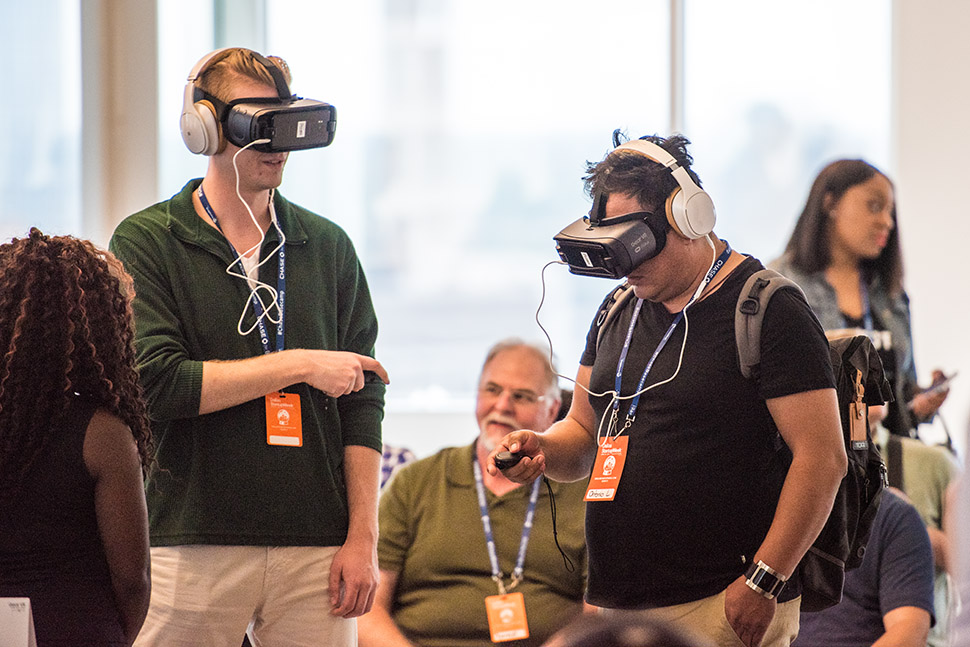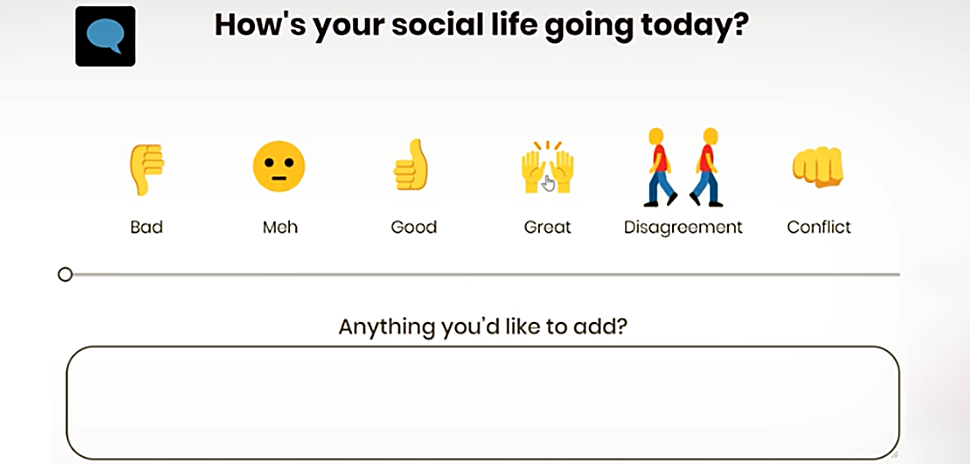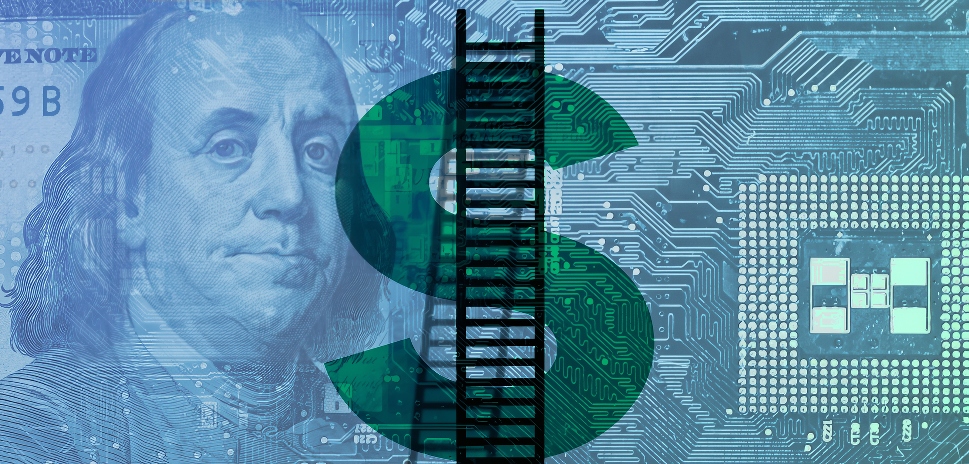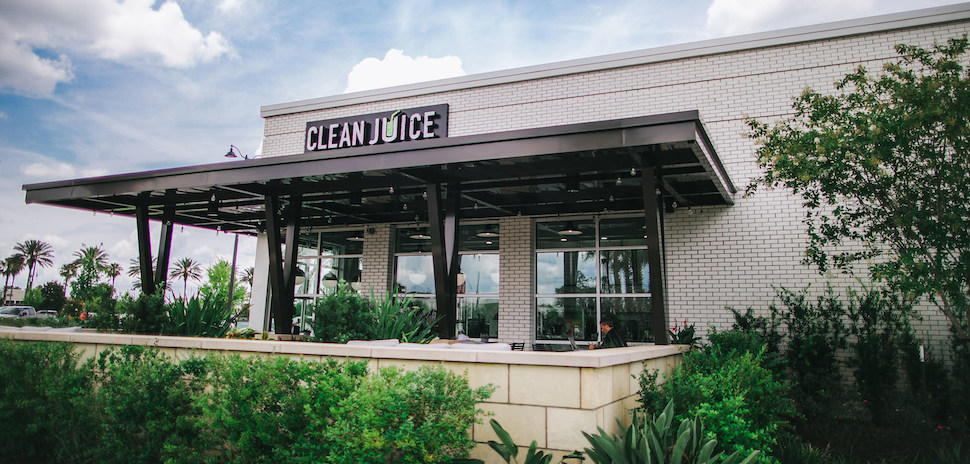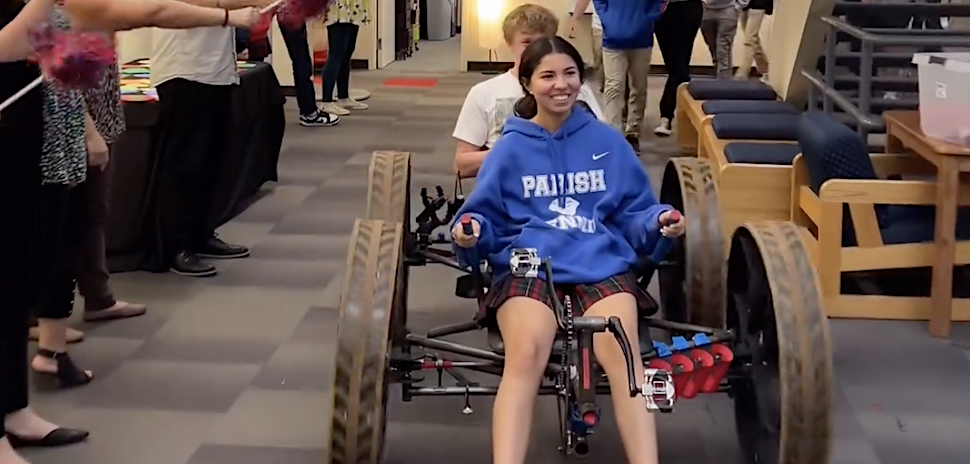The new Samsung Gear VR has deep North Texas roots.
From Samsung’s VR team based in Richardson to the startups that create the content, such as 900lbs of Creative and Groove Jones, the headset will showcase the creativity and innovation that’s taking place in Dallas-Fort Worth.
For a tour of 900lbs of Creative, go here.
The mobile-powered goggles launch April 21 and are free with the purchase of a Galaxy S8.
“There are some really amazing VR companies in town.”
Nick DiCarlo
“There are some really amazing VR companies in town,” said Nick DiCarlo, vice president of immersive products strategy and product marketing for Samsung.
Samsung showcased the technology at Dallas Startup Week Tuesday and Wednesday with games and videos.
That includes the first-person shooter game called Drop Dead where gamers are immersed in a digital environment full of terrifying zombies. The game uses the Gear VR and its bluetooth hand controller that features a trigger and control pad.
Samsung has its own virtual reality app store with more than 700 games available, much of which were created in North Texas. The app store also has more than 1,700 360-degree videos that can transport the user to any environment in the world.
It’s all filmed using 360-degree cameras.
Like last year, Samsung offered a virtual courtside seat at the NCAA Men’s Final 4 game April 3 between Gonzaga University and the University of North Carolina.
“You can follow the game as the players are running past you just like you are there,” DiCarlo said.
WHAT’S COMING NEXT?
Virtual reality has advanced rapidly in the past few years but still has a way to go before mass adoption. It’s so wide open that experts don’t agree where it goes next.
A panel of virtual and augmented reality experts debated the topic at Wednesday at Dallas Startup Week.
Cost remains one of the biggest barriers to the technology gaining popular appeal.
Jordan Williams, founder and CEO of Captured Dimensions, said the content and hardware are expensive to develop.
“There’s a little bit of chicken and egg that we’ve got to get over.”
Jordan Williams
“There’s a little bit of chicken and egg that we’ve got to get over,” Williams said. “We’re still in the place in the market where the budgets aren’t really there to create an end to end experience that’s going to last more than a few minutes.”
One solution could be so-called “killer app” that’s so revolutionary and exciting that it goes viral.
“It’s something that’s compelling enough to draw people into a market that they wouldn’t have otherwise gone in,” said Matt Johnson, executive vice president of innovation for Addison-based Bottle Rocket.
So far, nothing like that has really materialized.
Dan Ferguson, partner and executive vice president of Groove Jones, said AR has a long way to go before it can be used by a wider audience.
“It’s extremely complicated and there’s a huge leap with how to get users to interact with the space,” Ferguson said.
“It’s extremely complicated and there’s a huge leap with how to get users to interact with the space.”
Dan Ferguson
When asked whether this immersive technology will ever become as widely adopted as the mobile device, Ferguson said a major societal shift needs to happen first.
That’s like comparing the early cell phone to a personal computer in the 1990s, Ferguson said. Eventually, the computer became the mobile device. The same revolution needs to happen with this technology.
Another popular debate is whether AR or VR will gain popularity first.
What’s emerging is a spectrum of immersiveness that ranges from an AR overlay, where digital content is imposed on the real world, to mixed reality where it’s a combination of the two, all the way to fully immersive VR with goggles, Johnson said.
All this 360-degree content will need a hefty network to keep it going. That’s a big reason why telecommunication companies like Dallas-based AT&T are developing a 5G network that would be capable of powering immersive technology.
Another revolution that’s coming is actual tactile experiences, such as using a glove that gets hot or cold and makes you feel like you’re actually touching something.
“That’s one direction that it is going,” Ferguson said. “Having the ability to pick up a virtual Coke can and feel how cold it was really gratifying.”
Someday there could be a full body suit.
Delivering what’s new and next in Dallas-Fort Worth innovation, every day. Get the Dallas Innovates e-newsletter.










